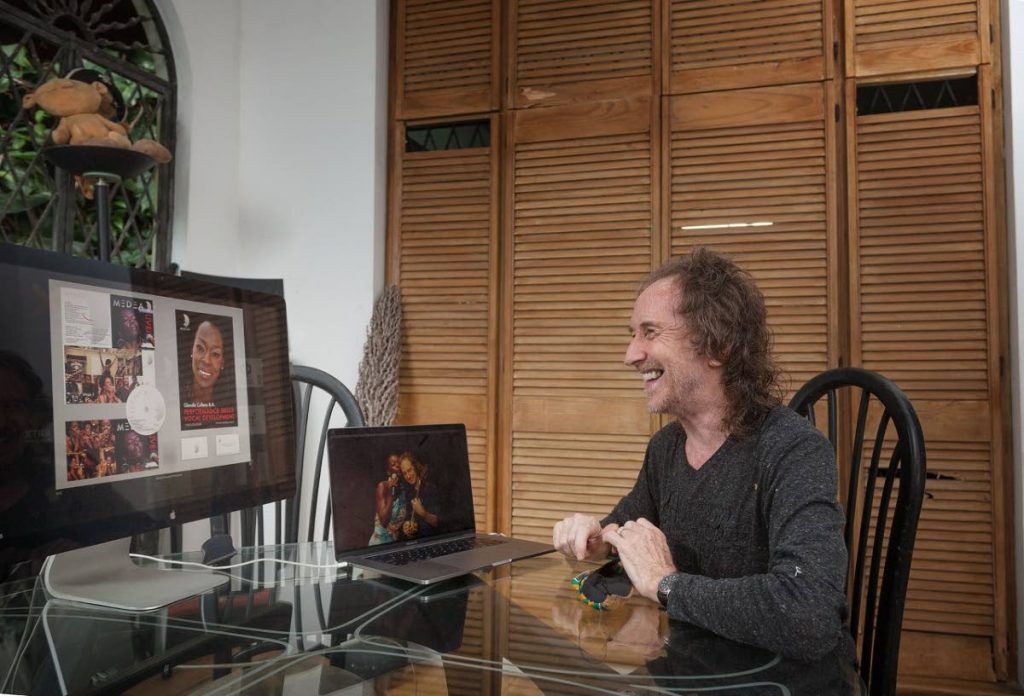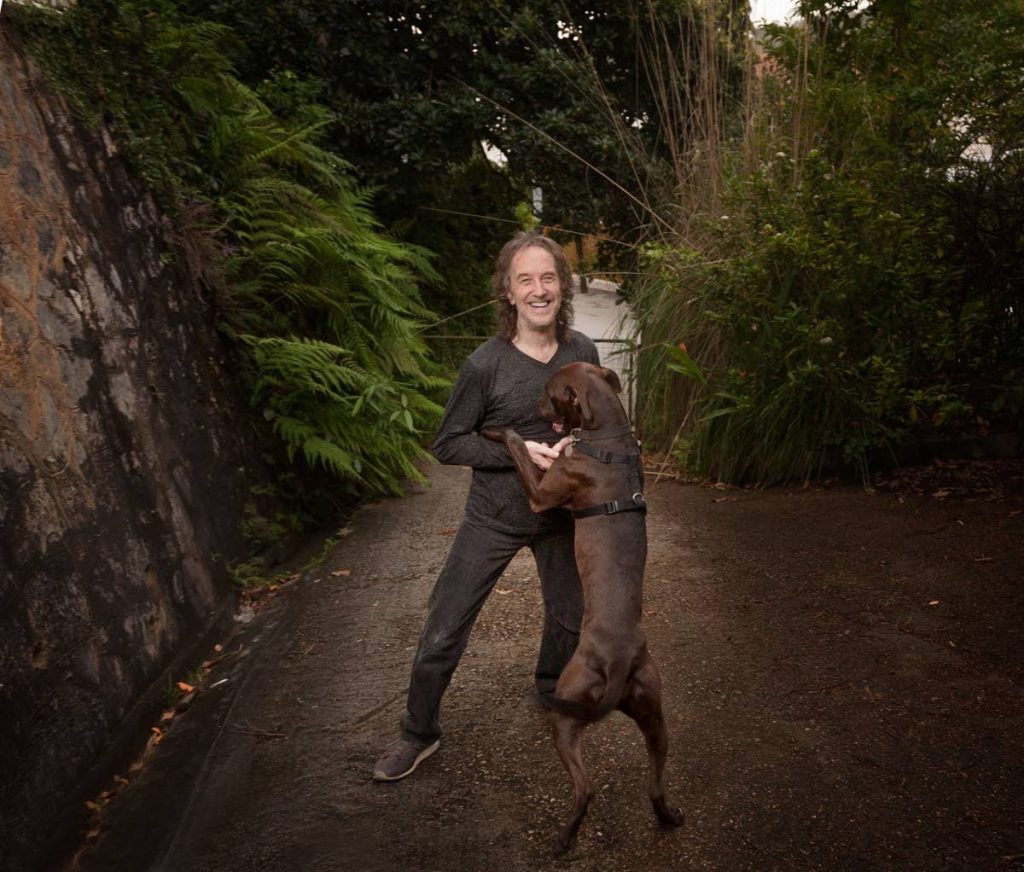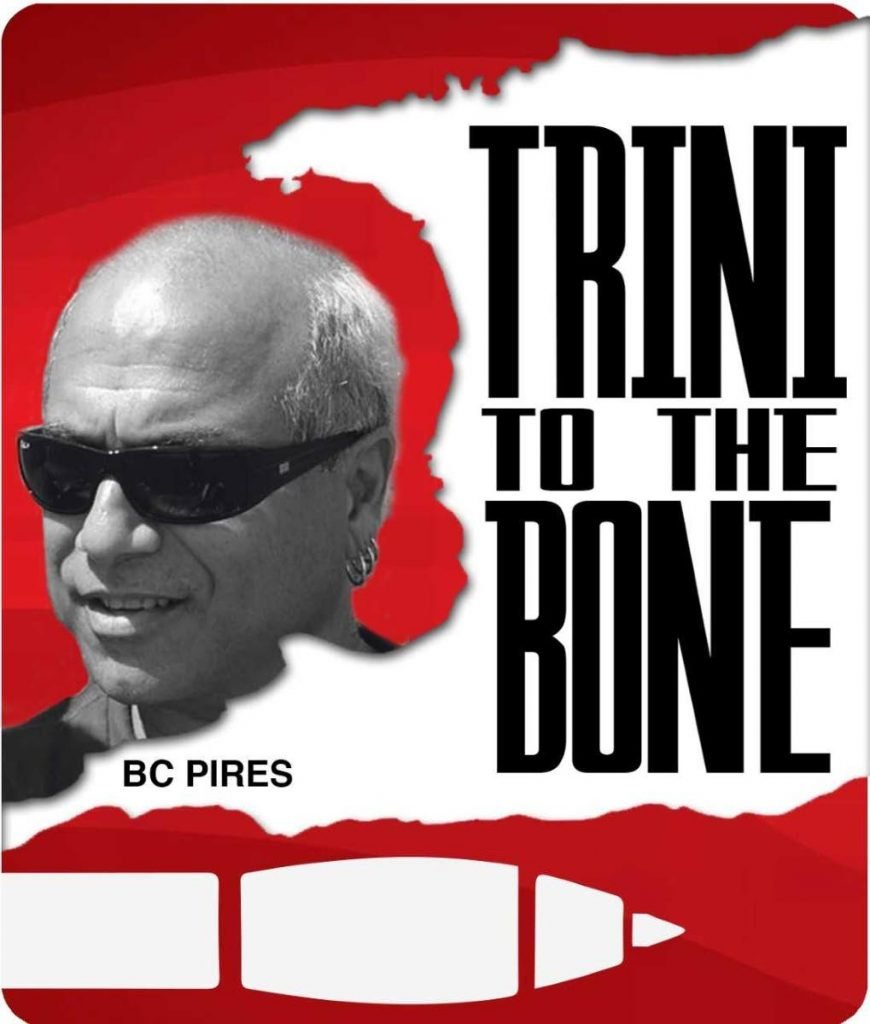English accent, Trini emphasis

AS TOLD TO BC PIRES
My name is Shane Collens and, when they hear my Queen’s English, BBC Radio accent, people don’t believe I was born in Trinidad.
My accent is more South Ken than Southend.
I’m fourth-generation Trinidadian and have lived here for 40 years.
I was born in Henry Pierre Street, my father in Dere Street.
My great-grandfather, the English implant, was posted here as Inspector of Schools, which, today would be the Minister of Education.
I’m from Cascade and have never wanted to live anywhere else. I have a view from the hillside. I can walk to Hi-Lo and the Savannah.
I even walk downtown. I love the exercise, and if you take the car, it takes as long to park as to walk.
My parents split when I was 18 months old. Dad stayed here and Mum carried me off to England, where I stayed until I was 30. So I’m culturally English.
In those days, my family had money and I went to a proper boarding school, Lancing College.
I finished secondary education at the College of Further Ed, which was free.
I was in England, but in a Trini household. So I had a Queen’s English accent but a Trini vocabulary.
Kids at school would look at me strangely when I said I was coming back “just now.”
My dad was a builder. Built a house, sold it, built two more, sold them, never looked back.
They say you have to get into property if you want to get rich.
Unfortunately, I didn’t do that. I’ve been a poor, struggling artist for 50 years.
It took 30 years to pay for it, but I own my house. I own my car, too, but I wouldn’t be able to sell it if I tried. Probably couldn’t even give it away.

I’m 67 and, two years ago, celebrated 50 years as an artist.
My first commission, when I was 15, was from the leader of the Angmering-on-Sea motorcycle club, who took a shine to my sister. They loved my design of an emblem for the back of their leather jackets.
I charged them 50 pence a go and there were eight of them, so I made four pound. But it was my first professional engagement.
I specialised in fashion design at art school but, after two years of financial difficulty in the fashion industry I thought, no, I can’t do this just because I want to make my own nice clothes.
So I went to work as a labourer on a building site. I graduated to being a bricklayer and put myself out to work building garden walls.
My elder brother, in Trinidad, persuaded me to come back to redesign the interiors of some old properties the family was still clinging on to that needed renovating.
I agreed to a three-year stint but ended up staying 40.
I was 30 when I landed in Trinidad in the 80s. I’ve grown to love it but, at first, I felt no sense of reconnection to anything. No familiarity with the landscape. It was like a foreign place to me, both physically and culturally.
I’m glad for my mixed background and heritage, glad I was educated in England but I’m also very glad my son Kirk was educated in Trinidad. If you hear him speak, you realise he grew up a Trini – but now he’s permanently in England.
When he was 16, he complained that the pharmacist at Hi-Lo wouldn’t sell him condoms. Veronica (Collens’s late first wife) took him down and told the pharmacist she agreed to him buying condoms.
The pharmacist said, “But he’s too young!”
Veronica said, “He’s too young to be a father!”
Veronica and I were married for 30 years before she succumbed to cancer.
We were soulmates. We shared common thinking. We were both atheists, both politically liberal. Both valued being hardworking and being good at our work.
And, most important, had the same sense of humour. I can’t imagine people lasting 30 years without laughing at the same jokes.
Saying goodbye to Veronica was very difficult. The last three years of her life were not comfortable.
I became her full-time nanny in the last year. She literally died, took her last breath, in my arms.
She had cancer of everything and there was no escape. The cruellest thing about surgery is that it gives you hope and there’s no such f--king thing! It would almost have been better for her not to have the surgery.
I won’t name names, but I heard the criticism that I remarried too soon after Veronica died, that it was disrespectful.
What people don’t realise is, I’d said my goodbyes to her, in my mind, four years prior. Once you get cancer, that’s it. It was really just the waiting game after that. Being as patient and as humanist as possible.
And then, finally, you let go. And you-must-move-on!
And I did. And I have. I have beautiful and fond memories, but I have my own life now, a lovely life with Glenda.
Glenda, my wife, and I share a lot: same religious beliefs – none. Same work ethic. I think we have the same sense of humour. Though she laughs at my jokes more than I laugh at hers.
Art is the greatest connection we had.
When I lost Veronica, I used to lust after Glenda (a singer, formerly Glenda Thomas) when I saw her on stage.
I’d actually met her on the street at the corner shop. I thought she was going to walk past me but she stopped and asked, “Are you Shane? Do you play guitar and make furniture?”
And I said, “Yes. One better than the other.”
She was auditioning for band members for her fantastic production Swing Out Live, in 2006. I went around with my guitar and book of songs.
I couldn’t get over how she kept smiling at me. When we began dating, I asked her why she was smiling. She said she couldn’t believe how badly I was singing. She wasn’t smiling, she was trying not to laugh.
Eventually, we had a quite serious jazz-rock band called Medea.
I’ve handled pandemic lockdown very well (mentally). I’ve always been very happy with my own company. I also thought I’d do well, continuing working from home.
But my last big client (shut down under lockdown). That has devastated me financially. I’ve been forced to retire and put in for my annuity three years early.
People are always surprised to find out I’m Trinidadian. I guess I look English and I certainly sound English.
When I first came back, the Trinidad phone system sucked. When I eventually got through to any company, the voice on the other end would say, “Oh! Is this overseas?”
I would say, “Yes.” Because then they would put me through very quickly to whoever I wanted to reach.
I have no idea what a Trini is because I could not put all the Trinis I like into one sentence. I am a Trini – but so is Glenda. So is BC Pires. So is Denis Solomon. So was Boscoe Holder.
We’re extremely talented people, doing fantastic things around the world – so why are we so incompetent at home? Is it that we’re the ones left behind?
I’m talking about the people who “take charge.” Don’t complain! Get in there, roll up your sleeves and fix it yourself!
But I’m very happy not to.
To me, Trinidad and Tobago means home.
Read the full version of this feature on Saturday at www.BCPires.com



Comments
"English accent, Trini emphasis"